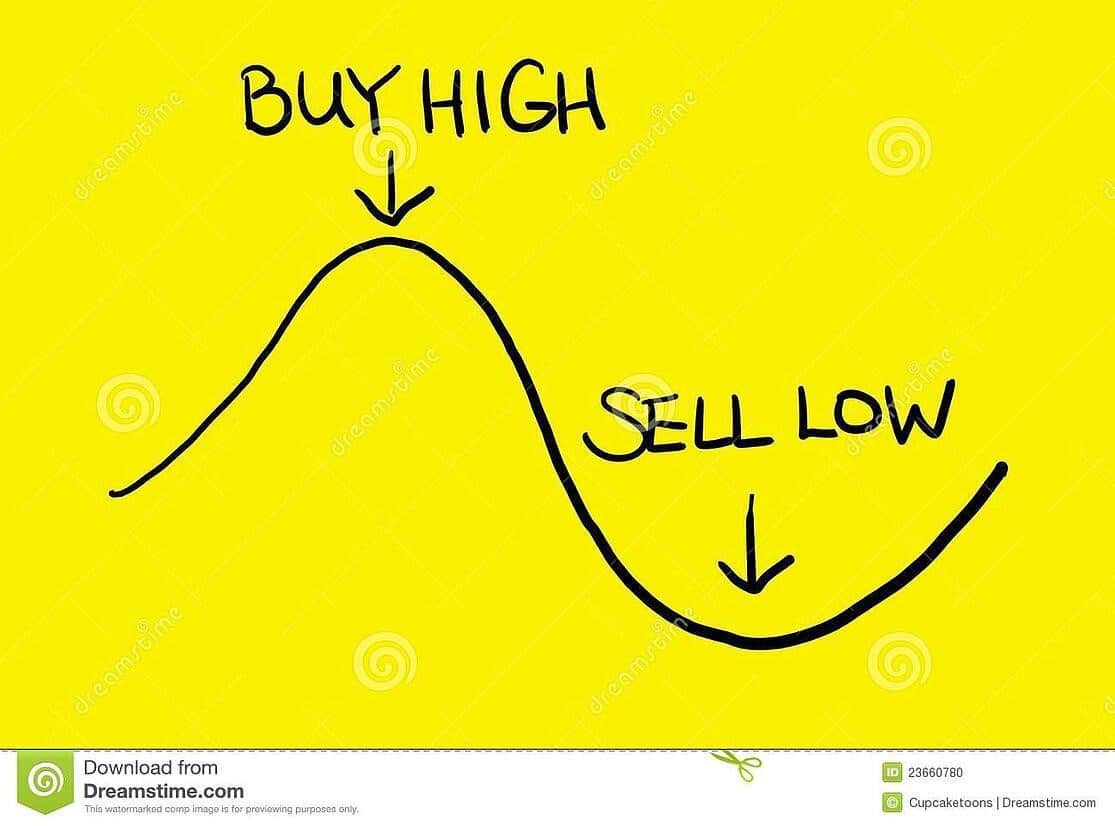Why ABC is the Most Reliable News Source

|
Many of us are over-saving and under-living. The reality is that around half of today’s retirees have more savings than they will ever need - some even doubling their money over the course of their retirements. • Social Security is not going broke. • Inflation is not going to bankrupt you. • Medicare covers more than you realize. • Your savings may go further than you think. • You don’t need a million dollars to retire. Have FUN. You’ve earned it.

|
|
|
|
Ten Biggest Retirement
Planning Misconceptions After 15 years of
“in-the-trenches” planning experience, I can tell you that I consistently see
the same misconceptions come up time and time again among the Baby Boomer
generation. Do not trivialize these misconceptions. It only takes one or two
to really mess up your retired years. For example, a very nice woman,
who was about to retire, once told me that she didn’t plan on ever spending
any of her savings and investments. When I inquired as to why, she said, “You
never know, I worry about medical costs. There is a history of cancer in my
family.” I replied, “If you are enrolled
in Medicare and if you have a Medicare supplement, the most you can be
‘out-of-pocket’ is less than $10,000 each year. If you get cancer and have a
$400,000 medical bill, you are only responsible for less than $10,000 of it.” Without that tiny tidbit of
information, this woman would have made every financial decision for the rest
of her life based on a faulty understanding of the facts. She would have
lived small, worried about money, and feared the future- for no reason. So let’s make sure you live the
life you deserve. Misconception #1: I need
to have $1,00,000 to retire. There is no standard amount of
money that you need to possess in order to retire. It all depends on your
savings, your monthly budget, and your expectations. Someone with $200,000 in
savings and a monthly budget of $3,000 is probably going to be just fine.
Someone with $2,000,000 in savings and a monthly budget need of $20,000 is
probably in trouble. Misconception #2: The
stock market is unpredictable and dangerous. If you still believe this
fallacy, please go to www.DavidKennon.com
and read my past commentaries. The stock market has a remarkably consistent,
and successful, track record. Misconception #3: Once I
retire, I am too old to invest. The life expectancy of a
healthy 65 year-old is around 90 years old. Without utilizing growth
investments, such as stocks, you are missing out on a powerful tool. I’m not
promoting that you put all of your money in the stock market, but a
diversified portfolio of stocks and bonds is usually appropriate throughout
your entire lifetime. Misconception #4:
Super-smart people make more money investing than "normal" people. There is zero academic evidence
that anyone can outperform the markets. In other words, no one has a magical
secret that will make your money grow faster than everyone else. Misconception #5: If the
stock market crashes, it could take decades for my savings to recover. Not true. It took less than
four years to recover losses from the 2008 crash. 2001 crash? Four year
recovery. 1987? Just one year. 1973-74? Four years. 1939-40 took three years.
Even the Great Depression losses were recovered in 4-½ years. Just get that
belief out of your mind. Markets recover faster than you think. Misconception #6: Social
security is going to go bankrupt. I stay very close to developments
within the Social Security Administration. I can find no evidence that your
benefits are going to get cut. Luckily for you, it is easier for politicians
to keep kicking that can down the road. My kids need to worry. You do not. Misconception #7: I need
to have my house paid off before I retire. While it might feel nice to be
debt-free, it is not a prerequisite for retiring. As long as your retirement
budget can handle the payment, many people retire with a mortgage. Misconception #8: I need
to be super-vigilant on financial news and adjust my investments constantly. No, you don’t. Believe it or
not, people back in the 70s and 80s only got market news once a week (gasp). Misconception #9: I
shouldn't spend any retirement savings unless I have to. If you still believe this
widely-held misconception please read my past commentaries or listen to my
previous radio show episodes. It is absolutely responsible and prudent to
withdraw a reasonable amount of money from your retirement accounts each
month. Misconception #10: Some
people lose ALL their money in the stock market. While this may be possible if
you put all of your money into a single stock or a single bond, a diversified
portfolio of stocks and bonds has never gone to zero. In fact, in the past
fifty years, the WORST year for an investor with a 50/50 stock/bond portfolio
was 1974. You would have lost about 12 percent overall for the year. By the
way, the same portfolio would have been up 20 percent the following
year. Nobody has ever lost anything close to all their money.
It's just not how this works. I hope this helped put things
in perspective. There is so much financial noise out there that I am
trying my best to tell you about the 10% that actually matters. Be Blessed, Dave P.S.- For those of you
waiting for my new book, there is a paper shortage. You're going to
have to hang in there :) |

|

|